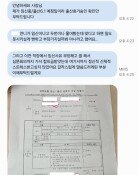Japanese Emperor Head of State Status To Be Amended
Japanese Emperor Head of State Status To Be Amended
Posted March. 23, 2005 22:34,
The Research Commission on the Constitution of the Japanese House of Representatives, launched in January 2000 with the aim of revising the Japanese constitution, provided a final report on March 23 on the status of the Japanese emperor and the Japanese self-defense forces.
Japanese ruling Liberal Democratic Party (LDP) is drawing up a separate amendment proposal, but the report, created with the approval of both the ruling and opposition parties, will act as a blueprint for Japans constitutional amendment process which will begin late next year.
The report of the Research Commission on the Constitution is providing a softer view to establishing the Japanese right to national defense and awarding heightened status to the Japanese emperor, but sensitive issues dealing with increasing the foreign activities of the Japanese army is predicted to bring about conflict.
Japanese Emperor Head of State Status Pending-
A few assemblymen of the LDP attempted in this report to reestablish the Japanese emperor, a symbolic figure since World War II, as the Japanese head of state.
The rightists that called for an amendment looked into establishing the rising sun flag and the Kimigayo, symbols of Japanese imperialism, as the national flag and national anthem, and looked into the issue of the status of the Japanese emperor. But resistance within and outside the party in its turning backward resulted in a drawback.
The commission said The majority agreed that the Japanese emperor should continue to have symbolic status, and the head of state opinion was not pervasive. The critical stance on the status of the emperor taken by the collaborative Komei Party, and the strong resistance from the largest opposition group, the Democratic Party, caused the LDP to step back from its move towards a revision of the constitution.
To pass a motion for a revision of the constitution, a concurring vote has to be made by two thirds of assemblymen present from both the House of Councilors and the House of Representatives.
The Japanese emperor is currently a symbolic head of state, conducting official dinners for foreign dignitaries and having formal authority in political events, but is distanced from actual politics.
In a variety of surveys that favor women inheriting the throne, the Commission proposed that women also be allowed to rise to the throne.
Focusing on the rise of Japans Self Defense Forces-
The report also mentions the issue of the strengthening of Japans self-defense army.
The commission emphasized that in matters of self-defense, we should allow the use of force (against another country), and utilize the army for international cooperative activities. By setting the role of the self-defense army in the constitution, the current law prohibiting the establishment of an army, navy, air force, and other military forces will be reversed, giving de jure status to the self-defense forces.
The Commission will formally announce the report mid-April to the chairman of the House of Representatives. Celebrating the 50th anniversary of the LDP, the constitution revision proposal will strengthen the Japanese march towards a constitutional amendment.
Won-Jae Park parkwj@donga.com
Headline News
- N. Korea launches cyberattacks on S. Korea's defense companies
- Major university hospital professors consider a day off each week
- Italy suffers from fiscal deficits from ‘Super Bonus’ scheme
- Inter Milan secures 20th Serie A title, surpassing AC Milan
- Ruling and opposition prioritize spending amid tax revenue shortfalls







